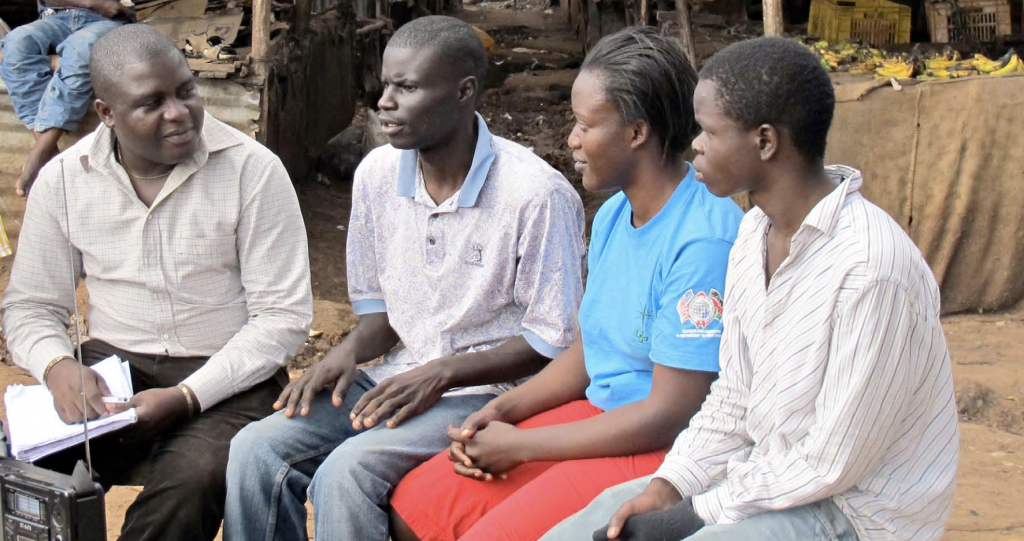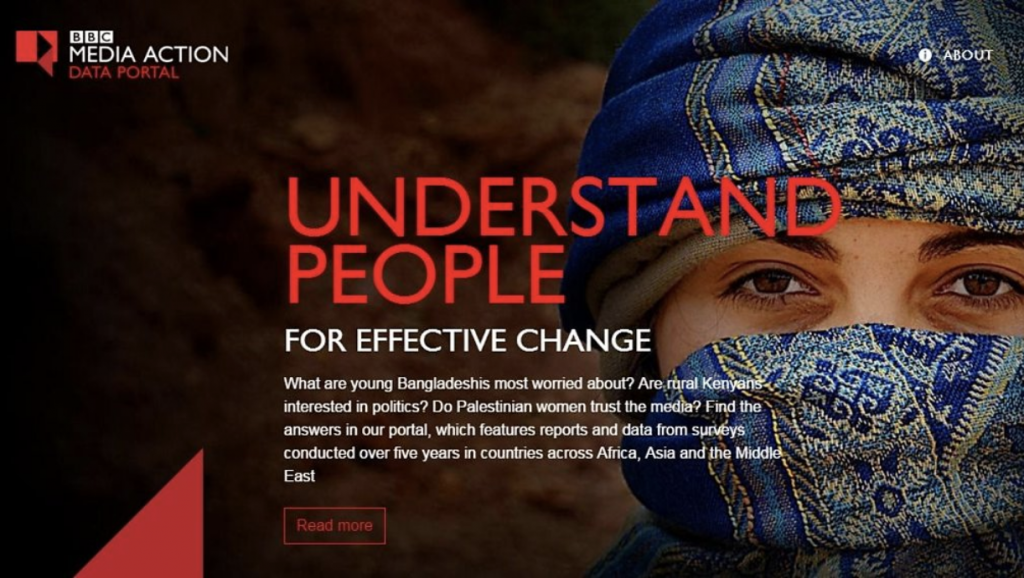
At BBC Media Action, audiences are the centrepiece of everyday work. This key BBC value is also vital for creating effective communication for development. To understand their audiences and assess the impact, their work begins and ends with research – and this remains true even in a time of crisis.
Sonia Whitehead, Head of Research at BBC Media Action and ESOMAR Foundation board member shared some insights on the work done by her team during the Covid-19 outbreak. In the following piece, we will get an idea of the tremendous value that research brings to charities and not-for-profits from a media and communication standpoint. We will understand the international work done by her team with similarities and differences between countries and learn what her research teams are doing in getting to the heart of a problem.
Research helps BBC Media Action to understand our audiences’ perceptions and concerns relating to the disease, as well as what information they need to make decisions and keep their families safe. This in turn enables our production teams to produce trusted, clear and actionable media and communication content that reaches people – including vulnerable communities – at scale, stands out in a sea of competing information (not all of which is true or helpful), and ultimately saves lives.
But how can research teams continue their vital work when they’re working at a distance from production colleagues, when the pace of production is so fast, and when face-to-face field work is out of the question?
Adapting our pre-testing methods
It can be difficult to keep pace with the need for rapid programme development when it comes to producing COVID-19 communications content. But it’s not good enough to say ‘we don’t have time to test’. You might get a piece of content on air or online more quickly – but the impact may be lost if the tone isn’t culturally appropriate, language about physical distancing too confusing, or your call to action is not clear enough for audiences.
So our message is simple: wherever possible, ‘pre-test, pre-test, pre-test’.
There are ways of gaining quick feedback under lockdown. Whilst working from home, our research team in Myanmar conducted some pre-testing of one of the new BBC Media Action COVID-19 public service announcements (PSA) with their friends and families. They found that respondents could recall the key information points from the PSA – about washing your hands and covering your face when coughing – and felt it was particularly engaging because of the traditional music and lively delivery, making it unique from more serious PSAs they had seen on other media platforms. They recommended that the production team continue with this positive, encouraging tone to engage audiences.

Inspired by this example, our research team in Indonesia were testing content with friends and family via telephone and social media, as well as getting back in touch with a group of young people who recently took part in qualitative research about climate change. They’re setting up closed Facebook groups through which they can pre-test content, such as short new radio dramas tackling COVID-19 misinformation and rumours, to receive rapid feedback. It’s a similar story in Afghanistan, where we’re using social media to recruit volunteers for online focus group discussions. They have used different ways to pre-test, such as contacting respondents and playing content via mobile.
Utilising local networks and contacts
With field work limited by local restrictions on movement, we’re relying on our wide-reaching networks and contacts nurtured over the years to help us access respondents and continue our vital research – to ensure programming reflects people’s changing needs.
For example, in Zambia, we’re working closely with our national network of community journalists – developed through years of work strengthening community radio in the country – to help us understand the needs and concerns of hard-to-reach audiences. We’re looking to set up simple, safe and physically distant mobile surveys for them to run in their communities to help us understand how perceptions of, and concerns about, the pandemic differ across rural and urban areas.
Similarly, in Bangladesh, where access to Cox’s Bazar refugee camp is now restricted, our researchers are making regular phone calls to our network of Rohingya volunteers to continue taking the pulse of the community. We’re sharing the insights gained – including persistent, widely circulating COVID-19 rumours and how to counter them – through our longstanding ‘What Matters?’ bulletin in partnership with Translators Without Borders.
And in Cambodia, where our researchers had been in the midst of a panel evaluation for our popular youth project Klahan9 (Brave 9), we’re pivoting the focus of our research to include perceptions on COVID-19. The team is also exploring how to draw upon our network of Klahan9 youth ambassadors to tell us more about how they and their communities are experiencing the pandemic.

Revisiting our existing data and building partnerships
To respect our audiences, it’s important that we use our existing insights relevant to COVID-19 and not conduct research for the sake of it.
Many of our teams around the world have been looking carefully at our wealth of existing audience research (much of which is open source and available on our website and Data Portal), re-analysing the data to draw out new insights around media access and usage among vulnerable audiences such as older people or people with disabilities. We’re also pulling out useful data from previous projects around health and hygiene – for instance, barriers to, and enablers of, good water, sanitation and hygiene practices in Nepal, Kenya and Ethiopia.
Externally, we are building relationships with organisations across key sectors (including market research, academic and humanitarian) which are producing surveys and collecting useful insights on COVID-19 – such as ACAPs, Innovations for Poverty Action, Kantar and the International Survey on Coronavirus, for information relevant to our projects.
Cross-country collaboration
Despite restrictions around freedom of movement, researchers at our London headquarters and across our network of country offices are working more closely than ever before – sharing expertise, exchanging COVID-19 research tips and tricks, and comparing cultural insights through regular calls and online forums. And we’re supporting our country offices virtually from London to better analyse their digital performance and monitor online chatter about the pandemic – using tools such as Crowdtangle’s COVID-19 tracking to help production teams fine-tune their outputs.
Encouragingly, there are early signs that our work is paying off. Some of the COVID-19 PSAs produced by our Myanmar team, for instance, are achieving record levels of online engagement. The Ministry of Health has even asked to make this PSA (watched nearly 3 million times and shared by 46,000+ people) official, for broadcast through national TV partners.
The situation is always changing. But we will continue to innovate and review research methodologies to ensure we’re providing essential insights to production colleagues, and best serving our audiences.
About the Author: Sonia Whitehead, Head of Research at BBC Media Action and ESOMAR Foundation board member.
(Originally posted in BBC Media Action Blog)
